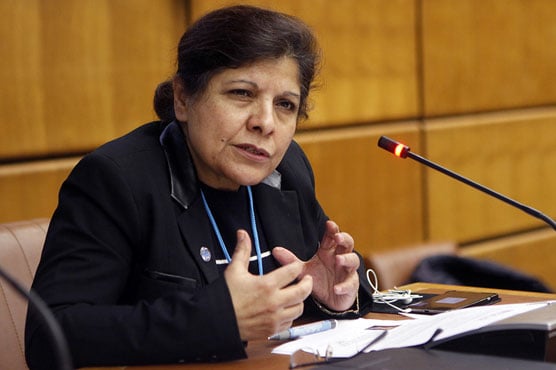By Staff Reporter
KARACHI: The economy is on track to grow by 2-2.5 percent this fiscal year, rebounding from a dollar scarcity-induced contraction, as it benefits from an IMF-backed reform program and improved agricultural output, the finance minister said.
The country has made “significant progress” in stabilizing its macroeconomic situation, despite facing challenges such as high inflation and debt, Dr Shamshad Akhtar, the caretaker finance minister, said in a video conference on Saturday.
“Growth has rebounded to a positive trajectory in the range of 2 to 2.5 percent with agriculture expected to grow by 5.6 percent and industry by 2.5 percent this fiscal year.”
Pakistan received $700 million from the International Monetary Fund in January, the second tranche of a $3 billion loan program that was agreed in July last year.
The IMF, however, has lowered its growth forecast for Pakistan to 2 percent for this fiscal year, citing tighter policy settings and weaker domestic demand. It also warned of risks from the external sector, as the country faces a widening trade deficit and rising import bills.
Akhtar said the country’s foreign exchange reserves had risen to $9.1 billion, from a low of $4 billion at the start of her term, thanks to the disbursement of funds from the IMF and other multilateral lenders.
“With the realization of quick disbursement of multilateral flows from the World Bank, Asian Development Bank and AIIB [Asian Infrastructure Investment Bank], which have also been enhanced by the International Monetary Fund release of the second tranche, the foreign exchange reserves have reached $9.1 billion from the lows of $4 billion at the beginning of our term,” Akhtar said.
The tax authority was expected to collect about Rs10 trillion in taxes this year, more than the target of Rs9.4 trillion. “The government is committed to reducing the fiscal and current account deficits, which have been a source of vulnerability for the economy,” the minister said.
She also expressed hope that the interest rates, which are at a record high of 22 percent, would come down as inflation eases and the fiscal and current account balances improve.
“Unless and until we have two of these accounts manageable, the fiscal and current account, we will not be able to reduce the interest rates,” Akhtar said. “Although not in my hands, it’s with the central bank, but my colleagues in the central bank are also now conscious of the fact that we will have to move to lower the interest rates subject to inflation coming down.”
Copyright © 2021 Independent Pakistan | All rights reserved




